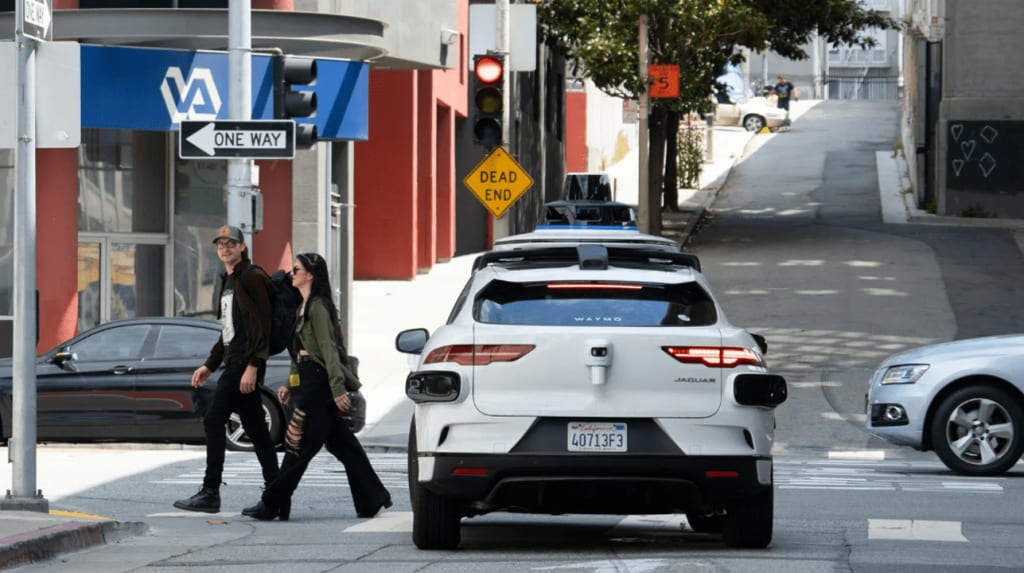How driverless cars will change our world
Self-Driving Cars

Driverless cars, also known as autonomous cars, are no longer a thing of the future. With the rapid advancements in technology, the possibility of a world with driverless cars is becoming more and more plausible. While the idea of cars that can drive themselves may seem like a far-fetched fantasy, the reality is that it's only a matter of time before they become mainstream. This article aims to explore the various ways in which driverless cars will change our world.
Improved Safety
One of the biggest advantages of driverless cars is improved safety on the roads. According to statistics, over 1.25 million people die annually in road accidents around the world. In the US alone, over 37,000 people die in car crashes every year. Driverless cars have the potential to drastically reduce these numbers.
This is because driverless cars are equipped with a range of sensors and cameras that enable them to detect and respond to their surroundings in real-time. They can also communicate with other vehicles on the road, making it possible for them to work together to avoid accidents. In addition, driverless cars do not suffer from human errors such as fatigue, distraction, or impaired driving.
Less Traffic Congestion
Another way driverless cars will change our world is by reducing traffic congestion. With a significant number of people using driverless cars, there will be fewer accidents and smoother traffic flow. This means that the number of cars on the road at any given time will be significantly reduced, leading to less congestion and reduced travel times.
Driverless cars are also expected to be more efficient in terms of fuel consumption, reducing emissions and improving air quality in cities. This will be a welcome relief for those living in cities where air pollution is a major issue.
Improved Mobility
Driverless cars will also greatly improve mobility, especially for those who are unable to drive due to age, disability, or other factors. With driverless cars, people who are unable to drive can still enjoy the freedom of mobility. This will lead to increased independence, better quality of life, and increased participation in society.
In addition, driverless cars can be programmed to take routes that are safer, more efficient, or have less traffic, making it easier and faster for people to get to their destinations. This is especially important for those living in areas with poor public transportation infrastructure.
Reduced Costs
Driverless cars have the potential to significantly reduce the costs associated with car ownership. This is because they will be more efficient in terms of fuel consumption, reducing the amount of money spent on fuel. They will also require less maintenance since they will be equipped with sensors that can detect problems early and alert drivers to take action.
In addition, driverless cars can be shared, reducing the need for individual car ownership. This means that people can simply rent a driverless car when they need it, instead of owning a car that they only use occasionally. This will significantly reduce the cost of owning a car, making it more affordable for everyone.
Increased Productivity
With driverless cars, people will have more time to be productive. This is because they will no longer have to focus on driving, leaving them free to do other things. For example, people can use their commute time to work, read, or relax. This will lead to increased productivity and a better work-life balance.
In addition, driverless cars will make it easier for people to run errands, reducing the time and effort required to complete daily tasks. This will give people more time to focus on other important things in their lives.
Environmental Impact
Another potential benefit of autonomous vehicles is their positive impact on the environment. Self-driving cars can significantly reduce fuel consumption and emissions, as they can drive more efficiently and eliminate human error. They can also reduce congestion and smooth out traffic flow, further reducing emissions from idling and stop-and-go traffic. In addition, autonomous vehicles can be designed to be electric or hybrid, which would further reduce their environmental impact.
Challenges and Concerns
While the potential benefits of driverless cars are numerous, there are also challenges and concerns that must be addressed. One major challenge is the need for a significant amount of testing and validation to ensure that the technology is safe and reliable. The current patchwork of regulations and laws regarding autonomous vehicles also presents a challenge, as there is a need for consistent regulations and standards across different states and countries.
Another concern is the potential impact on jobs, as self-driving trucks and taxis could replace human drivers. This could lead to job losses in the transportation industry and related fields, although it could also create new job opportunities in areas such as software development and vehicle maintenance.
There are also concerns about the cybersecurity of autonomous vehicles, as they will rely heavily on software and wireless communications. Hacking and cyber attacks could potentially compromise the safety and security of self-driving cars, and manufacturers will need to ensure that their systems are secure and resilient.
Finally, there are ethical and moral considerations surrounding autonomous vehicles. For example, self-driving cars may face difficult decisions in situations where accidents are unavoidable, such as choosing between hitting a pedestrian or swerving into oncoming traffic. Manufacturers and policymakers will need to grapple with these complex ethical questions as the technology becomes more widespread.
Driverless cars have the potential to revolutionize transportation and transform our world in ways we cannot yet imagine. They offer numerous benefits, from increased safety and efficiency to reduced congestion and emissions. However, there are also challenges and concerns that must be addressed, from ensuring the safety and reliability of the technology to grappling with ethical and moral considerations.
As the technology continues to evolve and become more widespread, it is important that we approach it with caution and care, balancing the potential benefits with the need to ensure safety, security, and ethical considerations. With thoughtful planning and collaboration between policymakers, manufacturers, and other stakeholders, autonomous vehicles have the potential to transform our world for the better.
About the Creator
nizam uddin
My name is Nizam Uddin and I am thrilled to be a part of Vocal.com's community of writers. As a passionate technology enthusiast, I am excited to share my insights and opinions on the latest trends and innovations in the world of tech.
Enjoyed the story? Support the Creator.
Subscribe for free to receive all their stories in your feed. You could also pledge your support or give them a one-off tip, letting them know you appreciate their work.






Comments
There are no comments for this story
Be the first to respond and start the conversation.